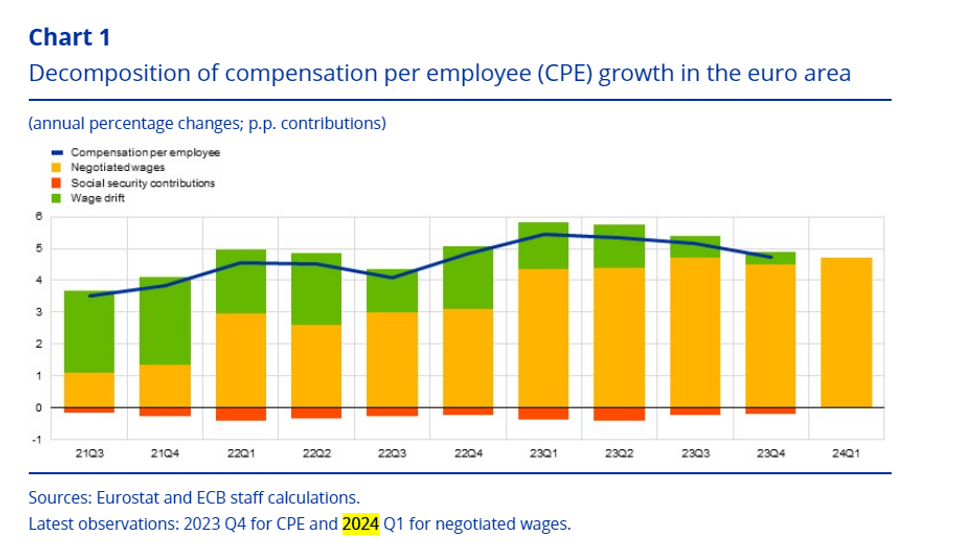-
Policy
Policy
Exclusive interviews with leading policymakers that convey the true policy message that impacts markets.
LATEST FROM POLICY: -
EM Policy
EM Policy
Exclusive interviews with leading policymakers that convey the true policy message that impacts markets.
LATEST FROM EM POLICY: -
G10 Markets
G10 Markets
Real-time insight on key fixed income and fx markets.
Launch MNI PodcastsFixed IncomeFI Markets AnalysisCentral Bank PreviewsFI PiFixed Income Technical AnalysisUS$ Credit Supply PipelineGilt Week AheadGlobal IssuanceEurozoneUKUSDeep DiveGlobal Issuance CalendarsEZ/UK Bond Auction CalendarEZ/UK T-bill Auction CalendarUS Treasury Auction CalendarPolitical RiskMNI Political Risk AnalysisMNI Political Risk - US Daily BriefMNI Political Risk - The week AheadElection Previews -
Emerging Markets
Emerging Markets
Real-time insight of emerging markets in CEMEA, Asia and LatAm region
-
Commodities
-
Credit
Credit
Real time insight of credit markets
-
Data
-
Global Macro
Global Macro
Actionable insight on monetary policy, balance sheet and inflation with focus on global issuance. Analysis on key political risk impacting the global markets.
Global MacroDM Central Bank PreviewsDM Central Bank ReviewsEM Central Bank PreviewsEM Central Bank ReviewsBalance Sheet AnalysisData AnalysisEurozone DataUK DataUS DataAPAC DataInflation InsightEmployment InsightGlobal IssuanceEurozoneUKUSDeep DiveGlobal Issuance Calendars EZ/UK Bond Auction Calendar EZ/UK T-bill Auction Calendar US Treasury Auction Calendar Global Macro Weekly -
About Us
To read the full story
Sign up now for free trial access to this content.
Please enter your details below.
Why MNI
MNI is the leading provider
of intelligence and analysis on the Global Fixed Income, Foreign Exchange and Energy markets. We use an innovative combination of real-time analysis, deep fundamental research and journalism to provide unique and actionable insights for traders and investors. Our "All signal, no noise" approach drives an intelligence service that is succinct and timely, which is highly regarded by our time constrained client base.Our Head Office is in London with offices in Chicago, Washington and Beijing, as well as an on the ground presence in other major financial centres across the world.
Real-time Actionable Insight
Get the latest on Central Bank Policy and FX & FI Markets to help inform both your strategic and tactical decision-making.
Free AccessNegotiated Wages Accelerate In Q1 Following German One-off Payments
The ECB’s negotiated wages indicator rose by 4.69% Y/Y, up from 4.45% in Q4. An acceleration had been expected by some analysts following yesterday’s German March negotiated wages data (which were 11.7% Y/Y vs 5.9% in Feb).
- Prior to the German data, general consensus was for a modest deceleration to around 4.3% Y/Y. However, we note that the German data was inflated by one-off payments but still showed underlying strength.
- Taken alongside the preliminary Q1 labour cost index on Tuesday (which was 4.9% Y/Y vs 3.4% in Q4), this suggests upside risks to overall Eurozone compensation per employee and by extension unit labour costs – both released as part of the full national accounts on June 7.
- However, the ECB Governing Council still expect a gradual moderation in wage growth in the quarters ahead (e.g. Schnabel yesterday evening).
- From the ECB’s blog on negotiated wages: “Negotiated wage growth is expected to remain elevated in 2024, which is in line with the persistence that has been factored into Eurosystem staff forecasts and reflects the multi-year adjustment process for wages. However, wage pressures look set to decelerate in 2024”.
- The Indeed wage tracker has continued to moderate through 2024, which should be reflected in the negotiated wage and compensation per employee data going forward.
- ECB-dated OIS contracts were little changed following the release, currently pricing 23bps of cuts through the June meeting and a cumulative 26bps through July.

To read the full story
Sign up now for free trial access to this content.
Please enter your details below.
Why MNI
MNI is the leading provider
of intelligence and analysis on the Global Fixed Income, Foreign Exchange and Energy markets. We use an innovative combination of real-time analysis, deep fundamental research and journalism to provide unique and actionable insights for traders and investors. Our "All signal, no noise" approach drives an intelligence service that is succinct and timely, which is highly regarded by our time constrained client base.Our Head Office is in London with offices in Chicago, Washington and Beijing, as well as an on the ground presence in other major financial centres across the world.
